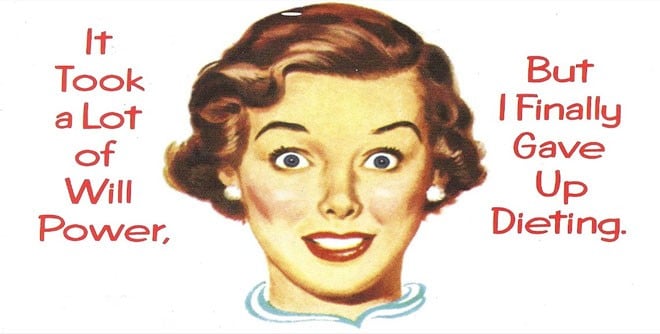
Why should somebody’s waist size define her, and not her beliefs, interests and achievements?

Earlier this week, ‘Humans of New York’ featured a man talking about his struggle with weight and the adverse role it had played in his life. The comments underneath were largely empathetic and encouraging, the overarching themes being self-acceptance and the need to love oneself regardless of the opinion of others, or the unrealistic images of beauty perpetuated by the media and fashion industries alike.
On surface, this seems like the right approach. We are taught from the onset of our lives to be confident, intelligent individuals who can stand up for themselves and make good choices without being influenced by peer pressure in all its negative forms.
However, as we grow older and are ‘socialised’ into conforming to norms that the society at large subscribes to, we realise that this may not be as easy as we were once told.
The same channels of primary and secondary socialisation that once instilled in us positive values, our family members and peers, become the reason we are shamed when we deviate from prescribed standards of beauty and what is considered desirable.
The summer before leaving for my first year of college, I lost a considerable amount of weight -- in fact, more than I had intended. What kept me constantly motivated were the compliments I would receive from people, commenting on how "different" I looked, and even asking for tips that would expedite their own weight losses.
Like any young woman, I was pleasantly surprised by the attention I was getting and resolved to sustain my new weight.
However, moving abroad soon weakened this resolve and by the time I came home for the summer I had managed to gain the dreaded "freshman fifteen". I wasn’t too worried -- I had been too busy focusing on more important things and I knew I could probably get back in shape over the summer.
The reactions from family members and relatives who probably meant well, however, soon changed all that. A sense of urgency to lose the weight crept up on me and soon became a permanent sinking feeling in my stomach, a constant reminder that as I was somehow less than ‘perfect’ or desirable.
It is both alarming and sad to note that it was only when I was dangerously underweight that I heard the word "skinny" being used in relation to my body. Despite having attained a weight that was both healthy and normal for my height, I was made to feel ‘fat’. I was told in no vague terms that there were certain clothes that just wouldn’t suit me anymore.
What upset me the most was the sense of being reduced to my appearance, as if it is my waist size that defines me, not my beliefs, interests and achievements.
I felt the need to share my own example because many of the things I want to say on the subject of fat shaming have been derived from this personal experience.
I do not challenge that my perspective may be severely limited and not necessarily representative of all existing attitudes towards ‘fatness’. There is a multitude of issues I cannot claim to know anything about -- body dysmorphia and eating disorders among them.
But what I can say for certain is that the onus to feel comfortable in one’s skin does not lie on the individual alone. It lies on the plethora of people whose most casual, subtle comments about others’ appearances or eating habits can contribute significantly to the crumbling of their self-confidence.
In a way, though, I would have shuddered at the thought a month ago, I’m glad I gained the weight I did, because it has given me an insider’s perspective into just how absurd social attitudes can be. And how it isn’t just the media, celebrity culture and size-zero models that have warped conceptions of beauty and body image; it is the ordinary people who have accepted those representations as binding and relentlessly impose them on others.
In a world where the criteria for beauty are constantly becoming more stringent, it is important that we, as a collective, not lose sight of what is truly important.